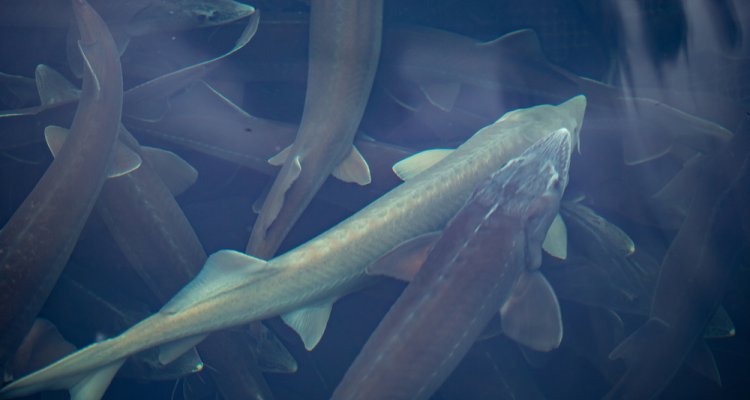
Breeding and Genomics in Aquaculture
Breeding to enhance fish growth, feed efficiency and animal health have been important factors contributing to the expanding role of food systems in global aquaculture. Yet, genetic selection of fish and shellfish on just production aspects is not sufficient anymore. Today’s breeding also requires selection criteria for many less-easy-to-measure characteristics like animal health and resilience, environmental impact and fertility. We identify the genetic aspects of these traits in fish and shellfish, and develop optimal breeding schemes for selection. We integrate genomic and quantitative approaches to animal breeding.
Breeding
Prof. Hans Komen and John Bastiaansen (Animal Breeding and Genomics group, ABG) are experts in breeding programs and genomic selection of finfish, with Mark Camara (Wageningen Livestock Research, WLR) having a strong additional interest in the genetics and breeding of shellfish.
Genomics
Knowledge of genetic variation within and between fish species is crucial to an understanding of patterns of variation during evolution or domestication. Whole-genome bioinformatics approaches by next generation sequencing assist functional analysis of fish genomes. The Animal Breeding and Genomics (ABG) and Aquaculture and Fisheries (AFI) groups of WUR join forces studying comparative genomics for fish health (Hendrik-Jan Megens).
Reproduction
Dr Arjan Palstra and Dr. Wout Abbink (Animal Breeding and Genomics, ABG) study the reproductive physiology of fish in nature and aquaculture and develop innovative methodology for solving reproduction bottlenecks of captive fish. Research topics include sexual maturation, fertility, and larval development. Closing the production cycle of species difficult to propagate (e.g. European eel) is a focus area.
